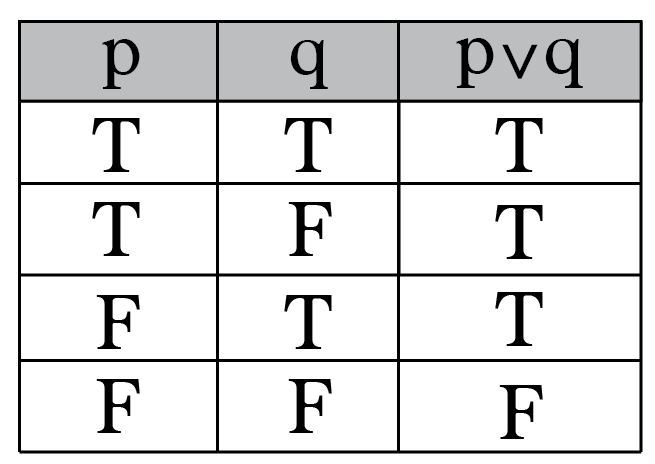Conditionals and Boolean Expressions
Lesson on Conditionals and Boolean Expressions + De Morgans Law
Conditionals and Booleans
- Conditionals with regards to programming are pieces of code that tell the computer which path to take in running a program
- If a certain condition is met, the computer will run a certain section of code
- if the condition is not met, the computer will run a different section of code
- A conditional statement is a boolean expression, the segment evaluates to either true of false
- conditionals can be used within other conditional statements depending on the outcome of code
- keeping these expressions simple makes code easy to understand
If
- an "If" statement is the simplest conditional. Usage below.
public class If{
public static void main(String[] arg){
int num = 20; //create a variable
if(num>18){ // check if condition is true of false (Boolean)
System.out.println("num is greater than 18"); // print output if true
}
}
}
If.main(null);
public class IfandElse{
public static void main(String[] arg){
int num = 20; //create a variable
if(num>30){ // check if condition is true of false (Boolean)
System.out.println("num is greater than 18"); // print output if true
}
else{
System.out.println("num is not greater than 18"); // print output when "if" evaluates to false
}
}
}
IfandElse.main(null);
public class ElseIf{
public static void main(String[] arg){
int num = 4; //create a variable
if(num == 0){ // check if condition is true of false (Boolean)
System.out.println("num is 00"); // print output if true
}
else if(num==1){
System.out.println("num is 1"); // print output when previous conditional evaluates to false
}
else if(num==2){
System.out.println("num is 2");// print output when previous conditional evaluates to false
}
else if(num==3){
System.out.println("num is 3"); // print output when previous conditional evaluates to false
}
else if(num==4){
System.out.println("num is 4"); // print output when previous conditional evaluates to false
}
else{
System.out.println("num is none of the above numbers"); // print output when all previous conditionals are false
}
}
}
ElseIf.main(null);
public class SwitchCase{
public static void main(String[] arg){
int num = 4; //create a variable
switch (num) {
case 0: // if num is 0
System.out.println("num is 0"); // print output if true
break;
case 1: // if num is 1
System.out.println("num is 1"); // print output if true
break;
case 2: // if num is 2
System.out.println("num is 2"); // print output if true
break;
case 3: // if num is 3
System.out.println("num is 3"); // print output if true
break;
case 4: // if num is 0
System.out.println("num is 4"); // print output if true
break;
default:
System.out.println("num is none of the options above"); // print output if true
break;
}
}
}
SwitchCase.main(null);
De Morgan's Law
- Complex conditional statements can be hard to evaluate when looking at "!" or "not" operators, and comparison operators, like >, <, >=, <=, ||, &&, and more
- De morgan's law helps by explaining how operators change when a "!" negation is present
Conversions:
- < becomes >=
becomes <=
- == becomes !=
- <= becomes >
= becomes <
- != becomes ==
Usage Example Below:
public class DeMorgans{
public static void main(String[] arg){
int x = 2;
int y = 3;
// Confusing expression, difficult to look at and evaluate outcome
if (!(x > 3 && y < 2)){
System.out.println("1. Condition is met");
}
// converting comparison operators and removing ! using DeMorgan's Law
if (x <= 3 && y >= 2){
System.out.println("2. By removing '!' negation and converting using DemMorgans law, this will also be true.");
}
}
}
DeMorgans.main(null);
- helpful for determining outcomes when boolean values are changed
- shows true and false outputs
- example of simple "or" table below
